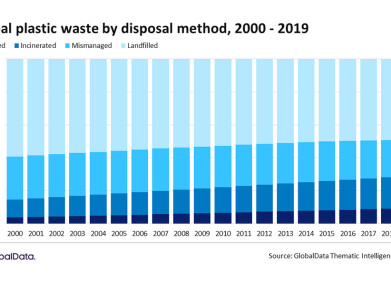Fuel for Thought
How Will Scottish “No” Vote Affect the UK Energy Sector?
Oct 03 2014
Debates raged regarding the future of the UK energy sector in the run-up to the Scottish referendum. From wind farm backers to North Sea oil investors, energy manufacturers and speculators across the UK energy sector expressed concern over the implications of a “yes” result.
Since oil, coal, gas and electricity production are all overseen by the UK government, a vote for independence might be understood as a vote for industrial restructure; Scottish independence could have foreshadowed a period of great uncertainty and seismic change.
In the end, the “no” campaign triumphed, enabling UK energy manufacturers and investors to breathe a sigh of relief. Yet, while it’s unlikely that Scotland will come to govern its own energy sector entirely independently, some more gradual changes are probable. In this post, we ask: how will the Scottish “no” vote affect the UK energy sector?
The question of Scottish renewables
In the weeks leading up to the Scottish referendum, several important questions regarding energy production were raised by individuals on both sides of the political divide. Scottish renewables groups, in particular, argued convincingly that Scotland ought to have a greater say in determining its own renewable energy policies. (Critics contended that an independent Scotland would be unable to afford to create and maintain the high numbers of wind farms required to power the country.)
During the run up to the referendum, the Scottish population became increasingly involved with its county’s politics and large numbers of people of both sides of the political divide turned out to vote. If such high levels of political engagement are maintained, Scottish renewables groups may yet succeed in convincing the Scottish population that they should have more say in their county’s renewable energy policies.
North Sea oil: a political football
Seemingly, no debate regarding Scottish independence could be concluded before some mention of North Sea oil reserves. The future of the North Sea was discussed at length, with many pro-independence campaigners insisting North Sea oil represented Scotland’s most valuable asset. The current UK government poured scorn over the idea that North Sea oil could sustain an independent Scotland, arguing that reserves were in fact scarce, and political instability actually discouraged much needed investment.
In recent years, concerns about rising costs have delayed several projects set to begin in the region. Duly, the current UK government will have to verify its stewardship claims, securing quality investments from overseas in the coming months.
Adjusting the status quo
If a period of great uncertainty and upheaval was likely to follow a “yes” result, the success of the “no” campaign may usher in a period of more gradual change. A stable political landscape could encourage new investments in the North Sea region, while the question of whether or not Scotland should command its own renewables is ongoing.
Once thing that didn’t crop up during the debates was whisky fuel and who would control this new energy source. Confused? Read all about Celtic Renewables’ plan to use substances that would otherwise have been wasted in malt whisky distillation to create bio-butanol in this post: Eco-Friendly Fuel to Be Made from Malt Whisky.
Digital Edition
PIN 25.2 Apr/May
May 2024
Safety - Carbon monoxide toxic and flammable gas detection Analytical Instrumentation - Density: A fundamental parameter at critical stages within the petroleum sector - Advancements and...
View all digital editions
Events
Jul 10 2024 Birmingham, UK
Thailand Oil & Gas Roadshow 2024
Jul 11 2024 Rayong, Thailand
Jul 20 2024 Denver, CO, USA
Jul 21 2024 Cape Town, South Africa
Jul 24 2024 Bogata, Colombia


















